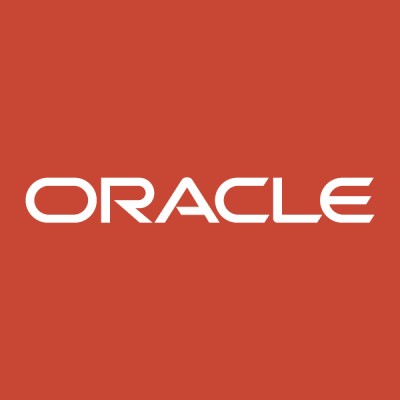The Battle for AI Supremacy: Musk vs. Altman in the Stargate Showdown
January 24, 2025, 3:52 am

Location: United States, Texas, Austin
Employees: 10001+
Founded date: 2003
Total raised: $3.86B

Location: United States, California, San Francisco
Employees: 201-500
Founded date: 2015
Total raised: $18.21B

Location: United States, Kansas, Winfield
Employees: 1001-5000
Founded date: 2011
Total raised: $820K
In the world of technology, where fortunes are made and lost in the blink of an eye, a new battle is brewing. At the center of this storm are two titans: Elon Musk and Sam Altman. Their feud, a clash of egos and ambitions, has reached a boiling point with the announcement of the "Stargate" AI project. This $500 billion initiative, backed by former President Trump and a cadre of tech leaders, aims to reshape the landscape of artificial intelligence in the United States. But not everyone is on board.
The Stargate project promises to build colossal data centers across the country. These centers are the backbone of AI, the engines that will drive the next wave of technological advancement. Trump, in his characteristic style, heralded the initiative as a monumental leap for America. He painted a picture of a future where the U.S. leads the world in AI innovation. But Musk, the self-proclaimed king of tech, was quick to rain on this parade.
In a series of late-night posts on X, Musk dismissed the Stargate plan as a pipe dream. He claimed that the funding was a mirage, asserting that SoftBank, a key player in the project, had "well under $10 billion secured." Musk's words were sharp, cutting through the optimism like a knife. He positioned himself as the voice of reason, the realist in a room full of dreamers.
Altman, however, was not one to back down. He countered Musk's claims with a mix of defiance and invitation. He extended an olive branch, inviting Musk to visit the construction site in Texas. This was more than just a rebuttal; it was a challenge. Altman’s response was a reminder that while Musk may have his own ambitions, the Stargate project is about something larger—national progress.
The roots of this conflict run deep. Musk and Altman were once allies, co-founders of OpenAI. But their paths diverged, leading to a bitter rivalry. Musk's lawsuit against OpenAI last year, accusing the organization of abandoning its nonprofit roots, added fuel to the fire. The tension between them is palpable, a mix of personal and professional grievances that has played out in courtrooms and on social media.
As the Stargate project unfolds, it becomes clear that this is not just a financial endeavor. It’s a battle for the future of AI. Musk, with his own AI venture, xAI, is positioning himself as a competitor to OpenAI. He argues that the playing field is tilted in favor of Altman and Microsoft, who have formed a powerful alliance. Musk's narrative is one of underdogs and unfair competition, a classic tale in the tech world.
The stakes are high. AI is not just a buzzword; it’s the future. The ability to harness its power could mean the difference between leading the world or falling behind. The Stargate project, if successful, could solidify the U.S. as a leader in AI technology. But Musk's skepticism raises questions. Can this ambitious plan deliver on its promises? Or is it merely a grand illusion?
Meanwhile, the energy landscape is also shifting. The data centers that will power Stargate require vast amounts of electricity. Companies like Crusoe Energy Systems are stepping up, promising to build facilities powered by renewable energy sources. This is a nod to sustainability, a crucial factor in today’s tech developments. The balance between innovation and environmental responsibility is delicate, and how these companies navigate it will be closely watched.
The absence of Microsoft from the initial Stargate announcement is notable. Microsoft has been a significant player in the AI space, investing billions in OpenAI. Their silence raises eyebrows. Are they playing a long game, or are they distancing themselves from the drama? Microsoft CEO Satya Nadella’s comments about their own $80 billion AI infrastructure plan suggest they are not sitting idle. They are ready to compete, even as the Stargate project unfolds.
As the narrative continues to evolve, one thing is clear: the battle lines are drawn. Musk and Altman represent two visions of the future. Musk's approach is often disruptive, a whirlwind of innovation and controversy. Altman, on the other hand, embodies a more collaborative spirit, seeking to build bridges in a fractured landscape.
The Stargate project is more than just a tech initiative; it’s a reflection of the broader struggles within the industry. It highlights the tension between profit and purpose, innovation and ethics. As these two giants clash, the world watches closely. The outcome of this feud could shape the future of AI for years to come.
In the end, the question remains: who will emerge victorious? Will it be Musk, with his bold claims and relentless drive? Or will Altman, with his strategic alliances and vision for the future, take the crown? The battle for AI supremacy is just beginning, and the stakes have never been higher. The world of technology is a stage, and the players are ready for their roles. The audience waits with bated breath.
The Stargate project promises to build colossal data centers across the country. These centers are the backbone of AI, the engines that will drive the next wave of technological advancement. Trump, in his characteristic style, heralded the initiative as a monumental leap for America. He painted a picture of a future where the U.S. leads the world in AI innovation. But Musk, the self-proclaimed king of tech, was quick to rain on this parade.
In a series of late-night posts on X, Musk dismissed the Stargate plan as a pipe dream. He claimed that the funding was a mirage, asserting that SoftBank, a key player in the project, had "well under $10 billion secured." Musk's words were sharp, cutting through the optimism like a knife. He positioned himself as the voice of reason, the realist in a room full of dreamers.
Altman, however, was not one to back down. He countered Musk's claims with a mix of defiance and invitation. He extended an olive branch, inviting Musk to visit the construction site in Texas. This was more than just a rebuttal; it was a challenge. Altman’s response was a reminder that while Musk may have his own ambitions, the Stargate project is about something larger—national progress.
The roots of this conflict run deep. Musk and Altman were once allies, co-founders of OpenAI. But their paths diverged, leading to a bitter rivalry. Musk's lawsuit against OpenAI last year, accusing the organization of abandoning its nonprofit roots, added fuel to the fire. The tension between them is palpable, a mix of personal and professional grievances that has played out in courtrooms and on social media.
As the Stargate project unfolds, it becomes clear that this is not just a financial endeavor. It’s a battle for the future of AI. Musk, with his own AI venture, xAI, is positioning himself as a competitor to OpenAI. He argues that the playing field is tilted in favor of Altman and Microsoft, who have formed a powerful alliance. Musk's narrative is one of underdogs and unfair competition, a classic tale in the tech world.
The stakes are high. AI is not just a buzzword; it’s the future. The ability to harness its power could mean the difference between leading the world or falling behind. The Stargate project, if successful, could solidify the U.S. as a leader in AI technology. But Musk's skepticism raises questions. Can this ambitious plan deliver on its promises? Or is it merely a grand illusion?
Meanwhile, the energy landscape is also shifting. The data centers that will power Stargate require vast amounts of electricity. Companies like Crusoe Energy Systems are stepping up, promising to build facilities powered by renewable energy sources. This is a nod to sustainability, a crucial factor in today’s tech developments. The balance between innovation and environmental responsibility is delicate, and how these companies navigate it will be closely watched.
The absence of Microsoft from the initial Stargate announcement is notable. Microsoft has been a significant player in the AI space, investing billions in OpenAI. Their silence raises eyebrows. Are they playing a long game, or are they distancing themselves from the drama? Microsoft CEO Satya Nadella’s comments about their own $80 billion AI infrastructure plan suggest they are not sitting idle. They are ready to compete, even as the Stargate project unfolds.
As the narrative continues to evolve, one thing is clear: the battle lines are drawn. Musk and Altman represent two visions of the future. Musk's approach is often disruptive, a whirlwind of innovation and controversy. Altman, on the other hand, embodies a more collaborative spirit, seeking to build bridges in a fractured landscape.
The Stargate project is more than just a tech initiative; it’s a reflection of the broader struggles within the industry. It highlights the tension between profit and purpose, innovation and ethics. As these two giants clash, the world watches closely. The outcome of this feud could shape the future of AI for years to come.
In the end, the question remains: who will emerge victorious? Will it be Musk, with his bold claims and relentless drive? Or will Altman, with his strategic alliances and vision for the future, take the crown? The battle for AI supremacy is just beginning, and the stakes have never been higher. The world of technology is a stage, and the players are ready for their roles. The audience waits with bated breath.
